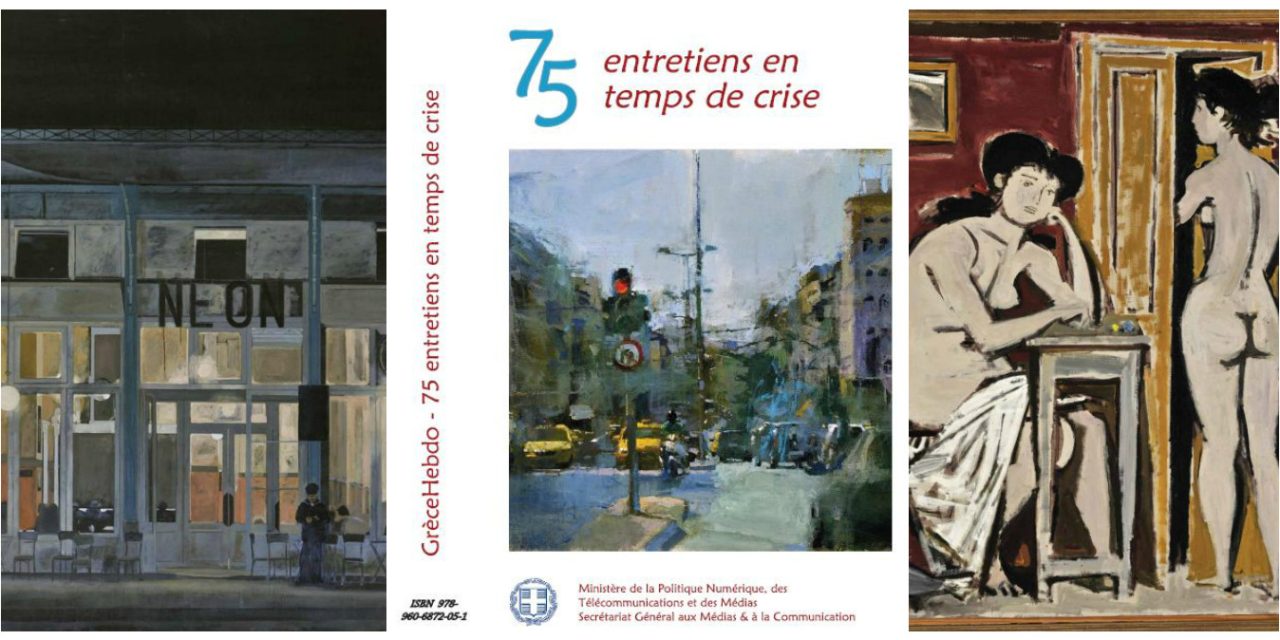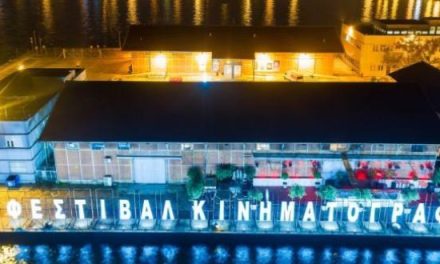The Ministry of Digital Policy, Telecommunications and Information, and specifically, the General Secretariat for Information and Communication has taken the initiative to print an original book that gathers 75 interviews of influential personalities, initially published online between 2012 and 2016 on our French-speaking platform GrèceHebdo.
In 2012, Greece had, for quite some time, been a major topic of discussion around the world. In the midst of a full-blown crisis, on the brink of bankruptcy, Greece provoked curiosity, anger, severe criticism, but also solidarity and understanding. The debate on the country was -and still remains- open, ambiguous and exposed to the most diverse analyses from all over the world. Assessments were abound and derogatory terms were present alongside demonstrations of friendship and support.
It was at this very moment, in July 2012, that GrèceHebdo, as an online platform of the General Secretariat for Media and Communication begun a series of interviews where influential people talk about Greece from different points of view, demonstrating that Greece cannot be reduced to an alarming reality; it invades the European, and even global, imaginary from many angles, through its history and culture. This is clearly reflected at the moment when, at the European summit of July 13, 2015, Greece’s exit from the Eurozone becomes very likely. The country finds itself in the eye of a media storm and a necessary connection is made between Greece and the cultural heritage of all Europe, fueling a new philhellenism.
GrèceHebdo’s interviewees are politicians, writers, philosophers, filmmakers, comedians, poets, diplomats, refugees, historians, sociologists, editors, and more. They are talking about Greece in French; together we are discovering how Francophones from all over the world see Greece, but also how Greeks see themselves and their country.
Former Belgian Prime Minister Guy Verhofstadt, seminal French philosophers Alain Badiou and Etienne Balibar, photographer Yannis Behrakis, authors Vassilis Alexakis and Petros Markaris, poets Yannis Stiggas and Salah Stétié, and poet and publishing director Sotiris Selavis, are some of the 75 personalities interviewed.
So far, we have 75 interviews that contribute to a much-needed nuanced dialogue, helping us decipher the complicated present and the plurality of Greek identity over time. A multiple Greece is emerging, often unrecognized, confounding, intense, seductive, far from tourist clichés and saturated symbols. And our adventure continues!
Starting from October 2015, the Secretariat General for Information & Communication (Γενική Γραμματεία Ενημέρωσης & Επικοινωνίας) has upgraded its six foreign language websites -namely Greek News Agenda, GrèceHebdo, Panorama Griego, Punto Grecia, GR_Aktuelland Greek Arab News– which offer daily briefs on news, opinion/analysis pieces and articles on political, economic, social and cultural developments related to Greece, as well as bigger features and interviews.
Interviews with people active in the fields of politics, art, science and society are an important part for all the websites. Through these interviews the Secretariat General for Media & Communication aims to present ca ollection of different perspectives, a multi-colored kaleidoscope of modern Greece and its place in the world as well as to contribute to the open dialogue on issues that are of major concern in Greece, in Europe and around the world.
Learn more about Greece’s Secretariat General for Information & Communication foreign language websites: Greece in the World: 6 foreign language websites
I.L.
TAGS: CRISIS | LITERATURE & BOOKS | MEDIA














